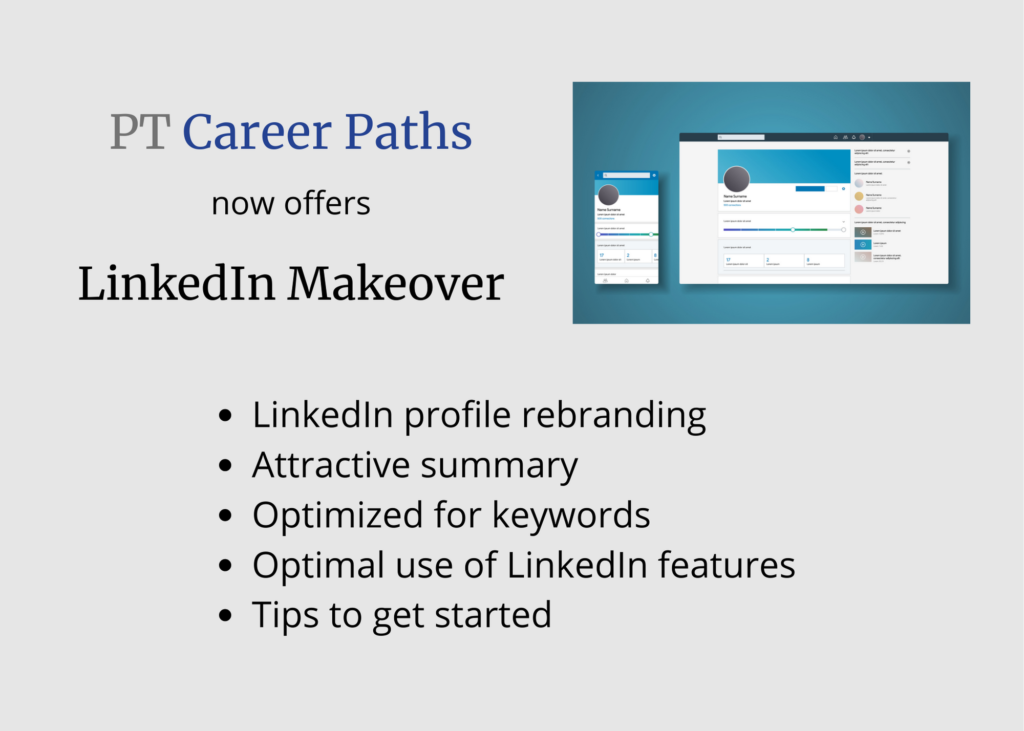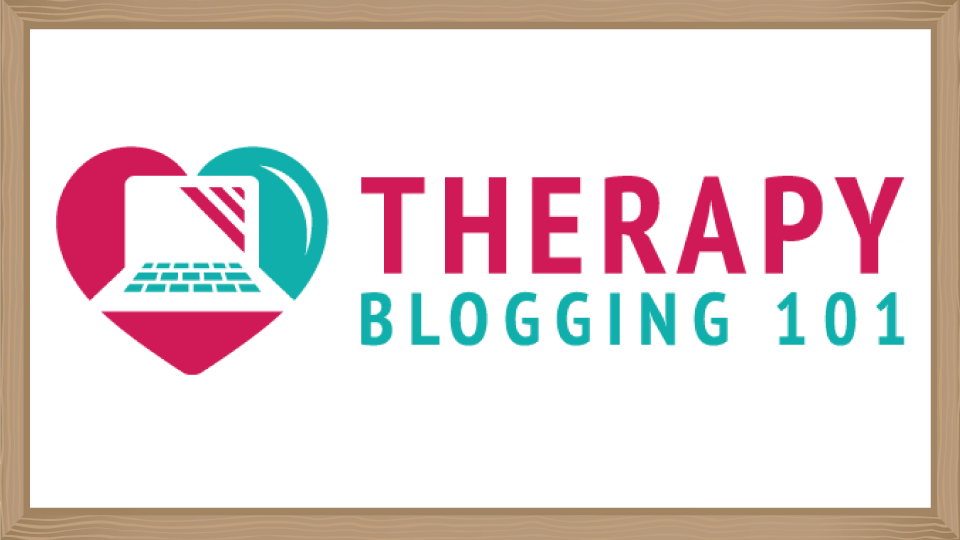
Recently I wrote an article on clinical career options after physiotherapy. In that article, I noted traditional clinical career paths which most of us are aware of. When I speak to physiotherapy graduates like you, during my one-on-one consultations, I realize that many of you actually love treating patients. However, clinical physiotherapists get burnt out quickly. Soon they start wondering if they are ready for a non-clinical career.
Transitioning to a non-clinical career is a big change. It may require you to learn new skills or get a whole new degree. That may not be possible for everyone. Hence in this article today we are going to look at some offbeat clinical career options where you don’t have to abandon your whole physiotherapy education. These offbeat career options after physiotherapy are not “clinical” in the traditional sense. I think, for many, it will be a sweet middle ground where they are still working with patients without getting burnt out!
1. Digital Health
This is hands down a new-age physiotherapy career path. Before the pandemic, many of us did not even think about delivering physiotherapy remotely. I used telerehabilitation for the first time in 2020 to treat a patient. For me, initially, it felt unusual since it was new. But once I learned the technology, camera angles, and short yet effective verbal cues, things became smoother.
In the case of telerehabilitation, you can start on your own or join any one of the emerging telerehab startups. Many of these companies prefer candidates with a master’s degree. If you join the start-up, I believe there is a lot of potential for career growth. As these startups expand their operations, you may get to transition into leadership roles based on the need.
The majority of the patient population continues to be musculoskeletal cases. However, these companies are growing to serve patients with neurological, cardiorespiratory, and woman’s health issues. Some companies integrate artificial intelligence into their digital physiotherapy programs. You will truly be working at the intersection of technology and healthcare.
Pros:
- Many times physiotherapists are paid well in these companies
- Work from home
- Flexible hours
Cons:
- Emerging research about the efficacy of telerehabilitation
- In a start-up environment, things can change quickly
- Lack of in-person interactions with patients and colleagues.
The type of person who could do well in this job:
- First things first, you need to be tech-savvy. This job involves conducting a PT session online, documentation, and everything in between.
- This person needs to be an excellent communicator and should be effective in teaching. This job entails a lot of patient education performed remotely so communication skills are a must.
- You will also need to be creative in your treatment approaches. Adapting to a hands-off approach might not be easy at first since our conventional physiotherapy training teaches us to be so hands-on.
- Most digital health companies are in a start-up phase right now. That means you will be required to work hard and step beyond clearly defined job roles.
Tips to get started:
- Start conducting telerehab sessions. Start with simple cases. As you build confidence move on to more difficult cases. This will provide you with experience to build your confidence as well as your resume.
- I highly recommend joining my newsletter. I am in touch with the company employees, HR, and even some of the founders of these start-ups. If they let me know of the job opening, you will know it too from my newsletter.
- Apart from that join LinkedIn. Lookup jobs on glassdoor, Indeed, or the company career portals.
- Some of the emerging startups and companies that hire Indian physiotherapists are HealthQ, Phyt Health, YourPhysio, HealthifyMe, and Fitterfly.
Relevant spotlights:
Consultant Physiotherapist & Scientific Lead at Fitterfly | Madhura Bhagat
Head of Physiotherapy Operations at Phyt Health | Dr. Ashwini Marathe, MPT
Team Leader At HealthifyMe | Roop Balchandani
Adult Neuro- Rehab Expert at Health Q Rehab | Dr. Krina Ved (PT)
Founder HealthQ | Physio. Meghana Dave

2. Physiotherapy Research Associate
To get in the game of clinical research, you can look for titles such as junior research fellow, physiotherapy research associate, or clinical research assistant. Many jobs will require having at least a master’s degree. Some may require you to have specialized training such as Ph.D. or Diploma in clinical research.
You may also need to give an additional entrance exam to get selected for the position of physiotherapy research associate. UGC NET exam is a general entrance exam that can be given by anyone with a master’s degree. However, some institutions hold their private entrance exams too. Details of these examinations can be found on the websites of the organizations that conduct them.
Many of these positions can be on a contract basis and will be open till the time research is finished. Sometimes short-term opportunities may open doors for a long-term opportunities.
Each workday can be different for research associates. Some days will involve data collection and working with patients. While other days will involve analysis, reading, or writing.
Pros:
- Most of the jobs are well paid
- The work fosters critical thinking and analytical skills while expanding knowledge in different domains
- Opportunity to network with people from different backgrounds
Cons:
- An entrance exam may be required to get started
- The job can involve short-term projects. So you may not have work once the project is finished
- You may be required to work on holidays/ Sundays
Type of person who could do well in this job
- You need to be good at mathematics, specifically statistics. If you were excited about leaving maths behind after 12th, this may not be a career option for you
- Apart from that this person also needs to be tech-savvy. A lot of research documentation needs to be done on the computer along with running statistical tests.
- Patience is another attribute that is good to have in this field. If you plan to grow in this career and pursue Ph.D., patience will come in handy.
Tips to get started:
- Start looking for positions such as junior research fellow, physiotherapy research associate, or physiotherapy research assistant on websites such as LinkedIn, Glassdoor, and Indeed.
- You can also lookup these jobs in newspaper ads, or on the career portal of different universities.
- Find out the requirements and see if you need to take an entrance examination.
Relevant Spotlight:
Ph.D. Scholar, Renal Rehabilitation | Dr. Megha Nataraj (PT)
Check out my FREE resource:
3. Ergonomic Consultant
We PTs are experts in posture analysis, ergonomic evaluations, and recommendations. Therefore, we can leverage our knowledge to help company employees. You can do this remotely with the help of a simple PowerPoint presentation and informative videos.
Moreover, you don’t have to restrict yourself to corporate employees. You can design webinars for a variety of professionals such as dentists, teachers, and shopkeepers.
You may need to position yourself as an expert to keep getting consistent work. Having a website or a social media handle with a niche in ergonomics will be useful. Post content regularly to establish yourself.
Pros:
- Your work hours are likely within the office hours. Most companies schedule ergonomic sessions for their employees within 9-5
- You can start right away. All you need to do is make a PowerPoint presentation and start reaching out.
- The pay is usually good. Although it depends a lot on the company and how you pitch yourself.
Cons:
- You need to take efforts to position yourself as an expert.
- You may be speaking in front of hundreds of people. This is a con if public speaking is your biggest nightmare.
- You need to be mindful of your competitors.
The type of person who could do well in this job
- It is important to get over the fear of public speaking in order to do this job successfully. You will be giving presentations to a group of people.
- If you are going to be conducting your sessions online, you will need to be tech-savvy to better serve your clients.
- One needs to be exceptional at networking. When you are establishing yourself, you will need to reach out to a lot of people.
Tips to get started:
- Give your best and make a good PPT about ergonomics for the population you will be presenting to. Take the help of your CBR professors or seniors to make it accurate.
- Reach out to your friends, family, and relatives who work in small offices. Offer to provide office ergonomics webinars for them. Keep it simple and concise. Remember to gather feedback.
- This way you can start to position yourself as an expert. Having your own website and/or Instagram handle with a niche in office ergonomics will be extremely helpful.
- There are very few jobs available with the title ‘ergonomic consultant’ but if you don’t want to be an entrepreneur, you can look them up on LinkedIn, Indeed, or Glassdoor.
Relevant Spotlight:
Medical Advisor at Bharti Axa | Dr. Anjali Narayan, MPT
4. Health writing and blogging
This is one of the most effective ways of patient education. You can simplify what you learned in physiotherapy college. Break it down into digestible chunks of information.
Physiotherapy product-based companies usually look for PT writers to write scientifically correct information in a simple language. The job often requires you to write about their product on their company blog, social media campaigns, or other marketing material.
You can choose to embark on an entrepreneurial journey and start your own health blog. You can pick your niche and create content around that topic. As your audience grows you can monetize your blog by conducting one on one consultations or arranging webinars.
Pros:
- Completely remote work and you can set your hours based on your schedule
- Once you are established the pay is usually good
- This side hustle can become your full-time job as you grow.
Cons:
- Takes time to get started.
- You need to learn to type super fast! (Trust me, this takes time if you haven’t learned to type in your school days).
- Involves sitting in front of the screen for hours and can cause ergonomic concerns if you are not careful.
The type of person who can do well in this job
- I genuinely believe if you want to be a writer, you need to be an avid reader first!
- You will need to be good at grammar and spelling. Having an expansive vocabulary is a plus.
- If you wish to go solo and start your health blog, you will need a lot of patience and perseverance till your online business takes off.
Tips to get started
- You can find a job on websites such as LinkedIn, Glassdoor, and Indeed. Look for titles such as health writer, copywriter, and content writer.
- You can start by writing for physiotherapy magazines. I know the PHYSIOTIMES accepts articles from the PTs and PT students. They publish articles based on merit and content. It is a good place to start building your writing portfolio. You can also reach out to me if you want to write a guest post for my blog. (Hint, hint!)
- Recently a friend told me that, you can find paid work on Wittypen, Peppercontent or Upwork. If you are considering starting your own blog, you can do it using WordPress. If you don’t want to start your own blog, consider posting on medium.
I recommend 2 courses for aspiring content writers:
Breaking into health writing by Michelle Guillemard (Get 25% off)

This course will teach you everything you need to know to get started with health and medical writing. This course is perfect for new writers and health professionals who want a career change. The curriculum covers:
- The work health & medical writers do
- The companies health & medical writers work for
- The essential skills you need to work professionally
- Salary expectations for health & medical writers
- How to plan your career transition with confidence
When you enroll using my link, you get 25% off!
Therapy Blogging 101 (Get 15% Off)

I highly recommend this course if you want to leverage your writing skills to start and monetize your own website! Meredith Castin and Chanda Jothen teamed up to create this course that teaches you to discover your passions, create the content that people love and develop monetization strategies, all while making money!
In this course you will get:
- Comprehensive online video education course
- Strategic overview of effective website monetization strategies
- Downloadable worksheets, templates, and reference material
- Search engine optimization (SEO) technique
- Comprehensive tech library and walkthroughs
- LIFETIME access to all the coursework
- And 2 bonus lessons about course creation and adapting to tech along with access to a private alumni group on Facebook!
When you enroll using my link, you will get a 15% discount!
Are these the only offbeat clinical career options after physiotherapy?
Absolutely not! I just covered the most common ones. You can also have a career in consulting, public health, recruiting, health informatics, and a lot more!
Where can I find Offbeat clinical jobs picked out just for physiotherapists?
Thanks for asking! You can sign up for my newsletter for free! I share physiotherapy job openings (Clinical, nonclinical, and everything in between!) across India as and when they become available.
I am ready to launch my career, where can I find more help?
Well, I am here to help you every step of the way. From making a resume, and cover letter to interview prep and salary negotiations. Sign up for my one-on-one consultations for more guidance!
Hello, My name is Tejashree Limaye. I am a physiotherapist with 10+ years of experience. I help you go from being stuck in your career to finding a job you love! I provide career guidance about clinical and non clinical PT career in India. I also help you with US PT licensing process. Welcome to my blog, I hope you find the exact guidance you have been looking for!

